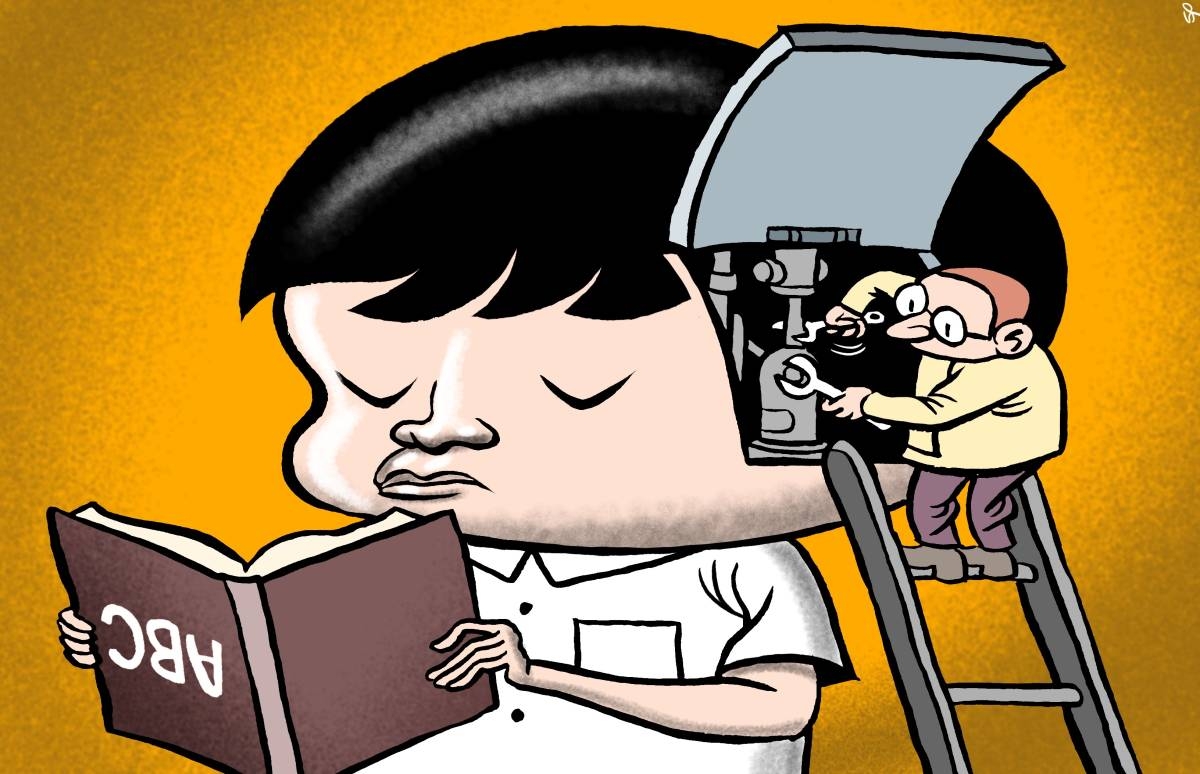
A CLOSER LOOK AT DEPED AND THE SECRETARY OF EDUCATION
WITH the resignation of Vice President Sara Duterte from her Cabinet post as Secretary of Education, there have been a lot of names being floated around to succeed her in taking over one of the most important administrative agencies in government. Given the urgency to fill the position, President Ferdinand Marcos Jr. said that the appointment of the next education secretary would happen before the end of the week as of this writing. Given that, when this column comes out on Monday, July 1, we may already have a new education secretary.
As we await this important announcement, let's look closely at the nature of the position of the Secretary of Education, its powers and functions under the law, and what awaits our next secretary in the education sector.
The Secretary of Education is responsible for the overall governance and supervision of the Philippine basic education sector composed of the public school system under the control of the Department of Education; public basic education schools offered outside of the department (i.e., laboratory schools of state universities and colleges and local colleges and universities (SUCs and LCUs), schools under the Philippine Science High School System, and Philippine National School for the Arts; and the private K to 12 schools.
The Secretary of Education, as such, is an alter ego of the president. In De Leon v Carpio, the Supreme Court declared that, Theoretically, the President has full control of all the members of his Cabinet and may appoint them as he sees fit or shuffle them at pleasure, subject only to confirmation by the Commission on Appointments, and replace them in his discretion. Once in place, they are at all times under the disposition of the president as their immediate superior. Justice Laurel put it aptly in Villena v. Secretary of the Interior when he said that "without minimizing the importance of the heads of the various departments, their personality is in reality but the projection of that of the president." Hence, "their acts, performed and promulgated in the regular course of business are, unless disapproved or reprobated by the chief executive, presumptively the acts of the chief executive.
The powers of a department secretary is provided under the Administrative Code of the Philippines, as follows: 1) advise the president in issuing executive orders, regulations, proclamations and other issuances, the promulgation of which is expressly vested by law in the president relative to matters under the jurisdiction of the department; 2) establish the policies and standards for the operation of the department pursuant to the approved programs of government; 3) promulgate rules and regulations necessary to carry out department objectives, policies, functions, plans, programs and projects; 4) promulgate administrative issuances necessary for the efficient administration of the offices under the secretary and for proper execution of the laws relative thereto; 5) exercise disciplinary powers over officers and employees under the secretary in accordance with law, including their investigation and the designation of a committee or officer to conduct such investigation; 6) appoint all officers and employees of the department except those whose appointments are vested in the president or in some other appointing authority; 7) exercise jurisdiction over all bureaus, offices, agencies and corporations under the department as are provided by law; 8) delegate authority to officers and employees under the secretary's direction; and 9) perform such other functions as may be provided by law.
Essentially, the powers and functions and the mandate of the Department of Education are lodged to and exercised by only one person -- the secretary. This power, however, is allocated across different units of the bureaucracy in DepEd under the principle of shared governance framework pursuant to Republic Act 9155, or the "Governance of Basic Education Act of 2001." Thus, the governance of basic education lodged with the Secretary of Education is shared across different levels of the bureaucracy, such as the national level, regional level, division level, school district level, and school level. The Department of Education exercises jurisdiction over the following: the administration supervision and control over public schools under the department; disciplinary proceedings pursuant to complaints filed, or motu proprio, against administrative officials of the department as well as school personnel and non-teaching personnel in the public school system; and reasonable supervision and regulation of private basic education schools.
The Secretary of Education shall be assisted by undersecretaries for administration, curriculum and teaching, finance, procurement, operations, and legal and legislative affairs, and assistant secretaries whose assignments, duties and responsibilities shall be governed by law.
As a snapshot, the new secretary shall oversee around 47,000 public schools under the Department of Education with over a million workforce, 3,000 non-DepEd government basic education schools, and around 13,000 private schools all over the country. The secretary shall be assuming a seat that has immense pressure not only to avert the country's growing learning crisis but also in ensuring learners are ready for the future they aspire for.
The author regularly holds The Legal Mind Executive Sessions for teachers and school administrators. Email [email protected].
2024-06-30T16:05:33Z dg43tfdfdgfd